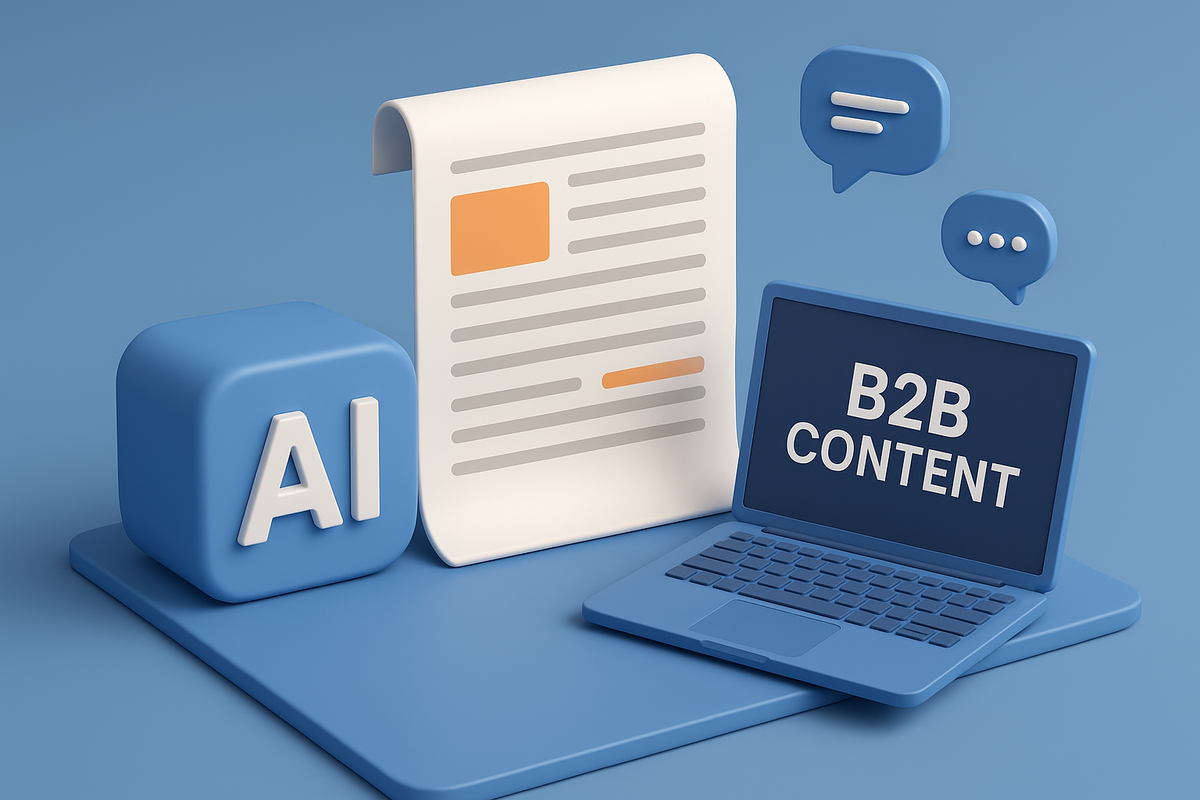Artificial Intelligence (AI) has already transformed marketing. From generating blog drafts to automating social media posts, AI is helping businesses scale content production faster and cheaper. But the million-dollar question is: Can AI generate whitepapers that B2B buyers actually trust?
Whitepapers remain one of the most credible and influential forms of B2B content. They’re data-driven, in-depth, and designed to demonstrate expertise. But with AI tools like ChatGPT, Jasper, and Writer making it easier than ever to churn out long-form content, marketers need to think carefully about how this technology affects trust and credibility.
The Promise of AI-Generated Whitepapers
1. Speed and Scale
A traditional whitepaper might take weeks to research, draft, design, and publish. AI can reduce that timeline significantly. By quickly generating outlines, pulling together industry trends, and suggesting formats, AI enables teams to produce more whitepapers in less time.
2. Cost Efficiency
Outsourcing whitepapers to agencies or analysts can be expensive. AI reduces reliance on external resources and lowers production costs, freeing budgets for distribution and syndication.
3. Personalization at Scale
AI can customize whitepapers for different buyer personas, industries, or even countries. Imagine producing one base whitepaper and letting AI tailor it for manufacturing leaders, fintech executives, and healthcare decision-makers—all while preserving the core insights.
4. Data Integration
AI tools increasingly integrate with CRMs and market intelligence platforms, pulling in real-time statistics and case studies. Instead of static PDFs, tomorrow’s whitepapers could feel more like living documents, updated regularly with the latest data.
The Challenges of AI in Whitepaper Creation
-
Credibility Issues: B2B buyers value accuracy. AI is known to generate “hallucinated” facts or outdated references, which can undermine trust.
-
Generic Content: Without expert oversight, AI-generated papers risk being repetitive and lacking original thought leadership.
-
Human Oversight Required: Subject matter experts are still essential for fact-checking, shaping arguments, and adding unique insights.
-
Transparency Concerns: If buyers discover a whitepaper is AI-generated without proper disclosure, trust could erode.
Best Practices for AI-Powered Whitepapers
-
Use AI for Drafting, Not Final Publishing – Let AI build the skeleton, but have experts refine and fact-check.
-
Blend Human + Machine Intelligence – AI handles speed; humans handle nuance, storytelling, and credibility.
-
Leverage AI for Research Assistance – Use it to analyze competitor content or summarize reports, but always validate sources.
-
Be Transparent – A small disclosure about AI assistance can build more trust than hiding it.
The Verdict: Can Machines Build Trust?
AI can’t replace the authority of human experts—at least not yet. But it can help marketers move faster, personalize content, and allocate more resources to syndication and distribution, where whitepapers truly generate ROI.
The most successful brands in 2025 will treat AI as a co-pilot, not a substitute.
Want to maximize reach for your whitepapers? Discover how our Whitepaper Syndication Services deliver trusted content to verified B2B audiences.
You May Also Like: Revolutionize Your Pipeline: 7 AI-Powered Demand Generation Hacks That Skyrocket ROI in 2025

